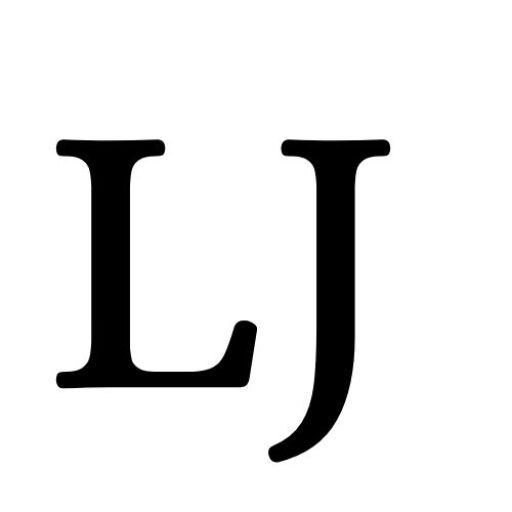El Salvador abortion ban is one of the strictest in the world and it’s not just restricting healthcare.
It’s imprisoning women for miscarriages. In 2025, as abortion bans spread across the United States and reproductive rights face rollbacks globally, El Salvador stands as a chilling preview of what’s to come. I traveled there not as a tourist, but as a witness to meet women imprisoned for the “crime” of having a miscarriage.
Table of Contents
- Meeting Teodora Vásquez: A Survivor of El Salvador Abortion Ban
- Inside El Salvador Abortion Ban: Where Miscarriage Means Prison
- Teodora’s Fight: From Prisoner to Advocate
- Why El Salvador Abortion Ban Matters to You—Wherever You Are
- My Grandmother’s Legacy—And Why I’ll Never Stop Fighting
- The Intersectionality of Oppression: Race, Class, and Reproductive Justice
- What Happens Next? The Fight Continues
- Take Action: How You Can Support Reproductive Justice
In 2025, as abortion bans spread across the United States and reproductive rights face rollbacks globally, El Salvador stands as a chilling preview of what’s to come. I traveled there not as a tourist, but as a witness and activvist to meet women imprisoned for the “crime” of having a miscarriage.
What I found was a system so brutal, so dehumanizing, that it should serve as a warning to every country flirting with total abortion bans: this is where that road leads.
Inside El Salvador Abortion Ban: Where Miscarriage Means Prison
Teodora Vásquez’s story is not unique in El Salvador. It’s routine.
In 2007, Teodora experienced a stillbirth. Instead of receiving medical care and compassion, she was arrested, prosecuted, and sentenced to 30 years in prison for aggravated homicide. She served nearly 11 years before international pressure secured her release in 2018.
Her “crime”? Having a miscarriage while poor, while a woman, while living under one of the world’s most draconian abortion laws.
When I met Teodora, I didn’t just hear a story, I looked into the eyes of a woman who had survived what so many others did not. Women who died in prison. Women still behind bars today. Women whose names we’ll never know because their families are too terrified to speak.
Inside El Salvador’s Total Abortion Ban: Where Miscarriage Means Prison
El Salvador abortion ban—with no exceptions for rape, incest, or life-threatening pregnancies—doesn’t just deny women healthcare. It turns their bodies into crime scenes.
El Salvador’s complete abortion ban, no exceptions for rape, incest, or life-threatening pregnancies doesn’t just deny women healthcare. It turns their bodies into crime scenes.
Here’s how the system works:
- A woman arrives at a hospital with a miscarriage or obstetric emergency
- Medical staff, legally obligated to report “suspicious” pregnancies, call the police
- The woman is arrested, often while still bleeding, still in pain
- Prosecutors charge her with aggravated homicide—carrying sentences of 30-50 years
- Poor women, especially young women, Indigenous women, and rural women are disproportionately targeted
Since the total ban took effect in 1998, at least 181 women have been prosecuted for pregnancy-related “crimes.” Many are still imprisoned. Some have died behind bars.
This isn’t justice. This is state-sanctioned violence against women.
Teodora’s Fight: From Prisoner to Advocate
After her release, Teodora didn’t retreat into silence. She couldn’t because too many women remain incarcerated for the same “crime” she was convicted of.
Today, Teodora leads Citizen Group for the Decriminalization of Abortion, an organization that fights for the release of women and girls imprisoned under El Salvador’s abortion ban. They provide legal support, amplify survivors’ stories, and challenge the system that continues to criminalize reproductive healthcare.
Every woman she helps free is a victory against a system designed to punish poverty, punish womanhood, and punish survival.
But the work is exhausting. The opposition is powerful. And the women still behind bars? They’re running out of time.
Why El Salvador Abortion Ban Matters to You – Wherever You Are
If you think this can’t happen in your country, think again. El Salvador abortion ban is not an outlier. It’s a blueprint.
In the United States, post-Roe v. Wade rollbacks have already led to women being investigated for miscarriages. In Poland, Ireland (before repeal), and across Latin America, abortion bans have resulted in prosecutions, deaths, and mass suffering.
El Salvador is not an outlier. It’s a blueprint.
When politicians promise “exceptions” for life-threatening pregnancies, remember: El Salvador’s law had those too, on paper. In practice, doctors are too afraid to intervene until it’s too late. Women die waiting for permission to save their own lives.
When they say abortion bans “protect life,” ask: whose life? Not the women bleeding out in emergency rooms. Not the 11-year-olds forced to carry their rapists’ pregnancies. Not the mothers of three who miscarry and are sentenced to decades in prison.
My Grandmother’s Legacy – And Why I’ll Never Stop Fighting
My journey to El Salvador wasn’t random. It was rooted in legacy.
My grandmother was an advocate for family planning, abortion rights, and anti-FGM work in The Gambia. She understood what happens when women lose control over their own bodies: they lose everything.
Meeting Teodora crystallized what my grandmother always knew: reproductive rights are human rights, and without them, no other rights are secure.
As a recipient of the IM Humanitarian Aid Prize, I carry the responsibility not just to witness suffering, but to transform that witnessing into action. That means:
- Amplifying Teodora’s voice and the voices of imprisoned women
- Educating audiences about the real-world consequences of abortion bans
- Challenging the narrative that “it can’t happen here”
- Supporting organizations fighting for decriminalization in El Salvador and beyond
Every time reproductive rights are threatened, in Sweden, in the U.S., anywhere I tell Teodora’s story. Because her story is a warning. And we ignore warnings at our peril.
The Intersectionality of Oppression: Race, Class, and Reproductive Justice
Let’s be clear: abortion bans don’t affect all women equally.
In El Salvador, the women prosecuted are overwhelmingly:
- Poor (wealthier women can access illegal abortions safely or travel abroad)
- Young (many are teenagers)
- Indigenous or Afro-descendant (racialized women face harsher scrutiny and sentencing)
- Rural (with less access to legal representation or medical care)
This is not accidental. Reproductive oppression is always intersectional. It targets those with the least power, the least resources, the least ability to fight back.
As a Black woman, as someone who has navigated systems designed to exclude me, I recognize the patterns. Abortion bans are not about “life”—they’re about control. Control over bodies, control over futures, control over who gets to be fully human.
What Happens Next? The Fight Continues
As I left El Salvador, the sun setting over streets where so many women have disappeared into prisons, I carried two things with me:
Grief, for the women still locked away, for the lives destroyed by unjust laws, for the futures stolen.
And resolve because Teodora didn’t survive 11 years in prison to watch the world forget. Because my grandmother didn’t fight for reproductive justice in The Gambia so I could stay silent. Because every woman deserves the right to decide what happens to her own body.
Teodora’s resilience, Anders Kompass’s humanitarian legacy, and the stories of women still fighting these are not just memories. They are blueprints for resistance.
We must transcend borders and ideologies. We must stand in solidarity with the marginalized. And we must fight relentlessly for a world where every person—regardless of race, class, or geography—has the power to make decisions about their own body and future.
The fight for reproductive justice is not over. In many places, it’s just beginning.
And I will not stop telling Teodora’s story until every woman is free.
Take Action: How You Can Support Reproductive Justice in El Salvador
- Support Citizen Group for the Decriminalization of Abortion (Teodora’s organization)
- Amplify the stories of the women still imprisoned
- Educate yourself on how abortion bans are spreading globally
- Advocate locally against reproductive rights rollbacks in your own country
- Donate to organizations providing legal aid, healthcare, and advocacy for imprisoned women
Want to bring this conversation to your organization, conference, or institution?
Explore Lovette’s books and advocacy work at lovettejallow.com.
Om Lovette Jallow: Lovette Jallow är prisbelönt författare, föreläsare och grundare av Black Vogue Sverige – ett initiativ som förändrade hur den svenska skönhetsindustrin ser på inkludering och representation.
Boka Lovette för föreläsningar och konsultationer inom antirasism, inkludering och skönhetsbranschens framtid.







